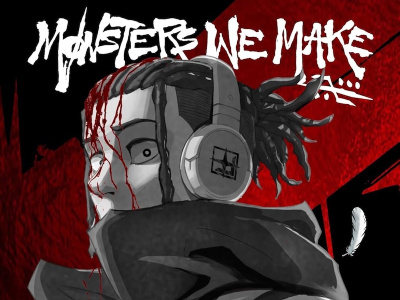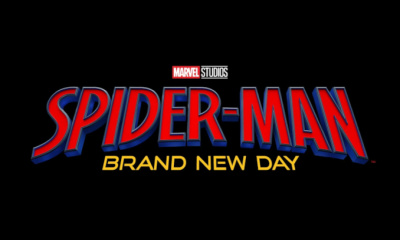Steve Bates of Bookery Fantasy in Fairborn,
Marvel announced a new distribution deal this week, placing Marvel Comics in nearly 6,000 7-Eleven convenience stores. That's twice the number of outlets in the direct market serviced by Diamond Comics. Barnes & Noble will also be carrying monthly Marvel comics (not just graphic novels and trade paperbacks) in 350 stores nationwide. What does all this entail for the specialty comic retailer?
I remember growing up buying comic books from a spinner rack at the local 'dry goods' store and at the newsstand in a nearby town. On vacation, I would seek out 7-Eleven stores, known to be a convenient place to buy comics and, of course, those heavenly Slushees; 7-Eleven even had special Slushee cups with Marvel characters on them, which were almost as cool as those Pepsi glasses with DC characters. Even though a spinner rack might only hold a few hundred copies of a few dozen titles, I could spend hours looking them over, usually not making my final selection until Mom beckoned or the store clerk bellowed 'this ain't a library, kid!'
I don't know if today's kids will be as receptive to comics in 7-Eleven as previous generations. After all, they grow up faster than we did, and are distracted by so many more things--video games, the Internet, cell phones, sports, etc--than we ever were. And, thanks to cable television, popular music, and real life in general, today's children are far more sophisticated (or, at the very least, they know more and are more cynical). So doubling the exposure to comics may not overnight double sales to consumers.
But I applaud Marvel's efforts to expand their market reach. Like other comics deals with Wal-Mart, Target, and Barnes & Noble, any attempt to introduce comics to a wider potential customer base should be supported (as long as it doesn't involve exclusives!). Hearkening back to Ronald Reagan's 'trickle down economics' theories, such exposure should translate into increased business for all of us, whether in comics, back issues, trades, toys, tee-shirts, or other swag. And who knows, maybe if enough kids are exposed to comics early enough, we can turn the tide on both a stagnant comics industry and a 'degeneration gap' in the attitudes and behavior of children without enough positive role models. Though I would argue that comics do not promote juvenile delinquency, as Dr. Frederic Wertham posited in the 1950's, from personal experience I can defend the statement that comic books do teach moral and ethical values important to a child's development. In the example set by heroes--self-sacrifice, fighting the good fight, honesty, perseverance, defending the down-trodden--children can see a better life than the one outside their bedroom door. I know Marvel is not considering that as part of their business plan, but I view it as a potential positive side effect. Or maybe Marvel is smarter than we give them credit for; through their Cover Concepts division, in partnership with Target, Marvel is distributing thousands of free comics to students in grades 3-4. In its second year, the Cover Concepts Comic Book Program is bolstering Target's 'Ready. Sit. Read!' campaign, introducing young readers not only to graphics-assisted literacy, but characters like Spider-Man and the Fantastic Four, as well. So maybe Marvel's new distribution deal with 7-Eleven is part of a larger 'master plan' to dominate children's literature.
I say, 'Hail to the Conqueror!'
The opinions expressed in this Talk Back article are solely those of the writer, and do not necessarily reflect the views of the editorial staff of ICv2.com.







